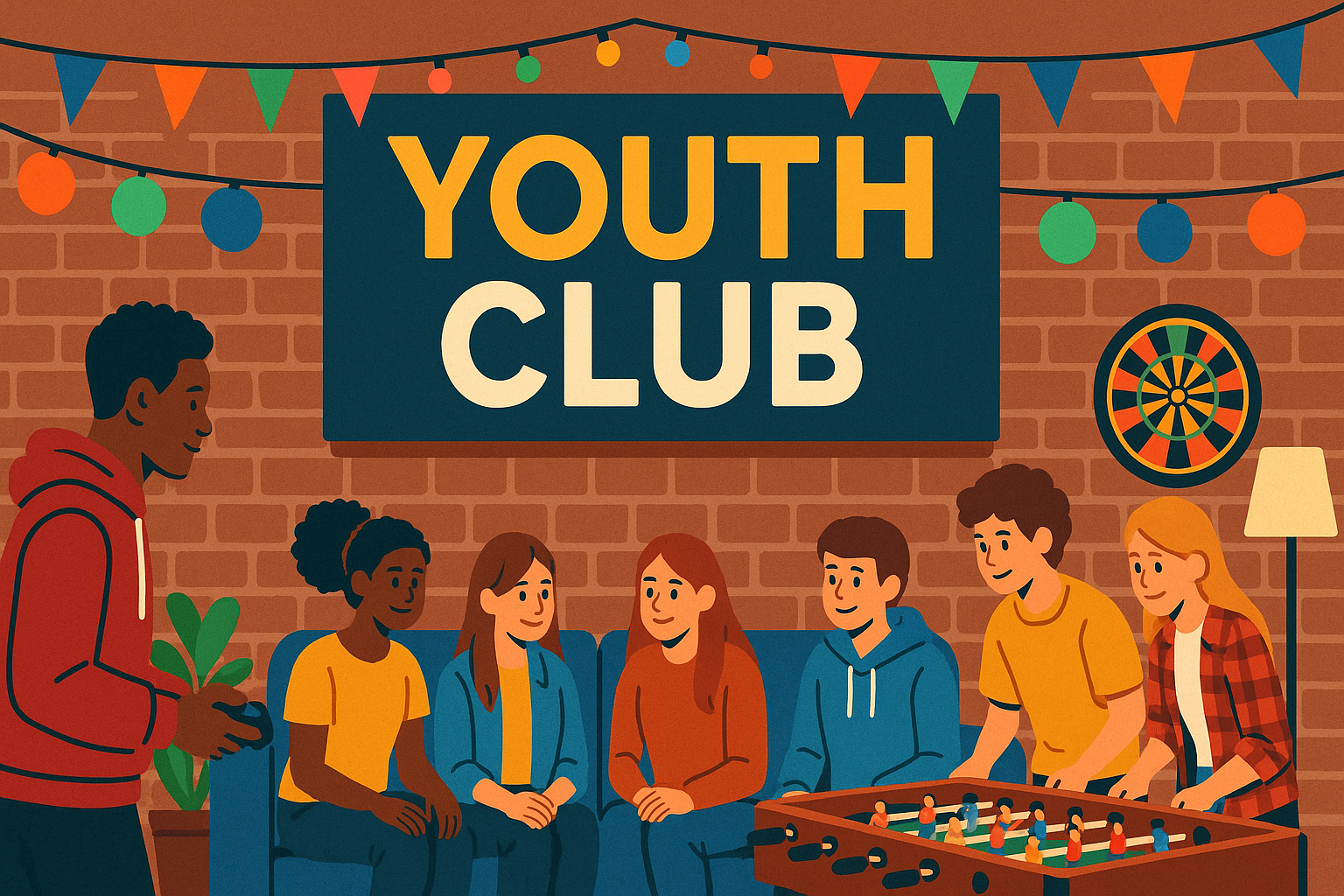
I won’t forget being on a panel at the Greater London Authority and being pressed on what we needed to improve mental health, and given it was an event at the GLA, reduce crime. My answer and that of the panel focussed heavily on the spaces where young people (should) go after school: youth clubs. Whilst we are so far along in the mental health crisis that what we need are Early Mental Health Support Hubs, the resurgence of youth clubs was what we knew would be ideal for a preventative approach towards many of the problems relating to young people.
That revival has now come.
According to a report by the Department for Culture, Media, and Sport, real-term spending on services for young people dropped by at least a quarter to 95% of local authorities between 2011 and 2021 (1). This is what has caused fast food chains like McDonalds to be the youth clubs of my generation. Over the summer, the government announced a package of £88 million to create opportunities for young people (2).
This investment is very much welcomed. More safe spaces for young people to find their passions and build their purpose. This notion of purpose is what will keep people off the street and, in my opinion, not contribute to the ever-prevalent NEET crisis (Not in Education, Employment, or Training). The investment in culture and extra-curricular activities will, over time, motivate young people to not only do something for themselves, but also to better society. For me, having access to music from an early age was fundamental, and in my teenage years, my purpose was to work on solutions to the mental health crisis. Now, up to 400 schools will have access to life-altering activities for young people; this should only be the beginning.
The Prime Minister mentioned in his announcement that part of the motivation behind this is to reduce young people behind screens, something that Angela Rayner, the former Deputy PM, has previously flagged as a concern. It is certainly true that, particularly for boys and young men, the lack of mentors creates a vacuum, making them turn to the dark corners of social media to meet this need. Whilst I want to specify that we should not blame technology as a whole, particularly the use of it to prevent, flag, and treat mental health and neurodivergent traits, it is important that we teach young people how to use technology mindfully. By adding safe spaces through youth clubs, children and young people will find the mentors they so desperately need.
I’m particularly excited about the announcement of out-of-school offerings, as, for so many children and young people, the idea of school does not inspire them. This lack of inspiration can sometimes cause them to go down a route of crime. Instead, we should consider how giving them a safe space outside of that environment, even just for a few hours a week, may open opportunities for them to thrive, perhaps even academically. It is no wonder that the leading independent schools are often the ones with the most developed co-curricular programmes. Therefore, re-establishing these opportunities in the state sector will only better the outcomes of future generations across the country.
With young people earning the long-overdue right to vote, making sure that they are engaged citizens can no longer be a nice-to-have; instead, it is the responsibility of the state to ensure that they are given a well-rounded education. The programmes announced by the government will not only create a more mentally healthy generation, but will also develop fundamental employability skills such as improving their communication and confidence. In the current landscape of Artificial Intelligence, it is soft skills like these that will prevail. This is all even more true when we consider that the people who will benefit the most from these investments are those who were locked in their houses during the pandemic and could not build key soft skills with their peers.
The investment in youth services comes at a time when they are needed most. Through well-managed resources and consultation with young people, which is already being done through the National Youth Strategy’s ‘Deliver You’ campaign, this summer’s announcement signifies a step in the right direction for the next generation. To ensure this continue, I join other campaigners in calling for a 3% ring-fence of the national schools budget to ensure schools have access to fund out-of-hours activities. This would allow every child the opportunity to thrive.
Sources:
1 - UK Government (2024). Youth provision and life outcomes: a study of the local impact of youth clubs (executive summary). [online] GOV.UK. Available at: https://www.gov.uk/government/publications/youth-provision-and-life-outcomes-research/youth-provision-and-life-outcomes-a-study-of-the-local-impact-of-youth-clubs-executive-summary.
2 - DCMS (2025). Prime Minister unveils new opportunities for young people to re-connect with their communities. [online] GOV.UK. Available at: https://www.gov.uk/government/news/prime-minister-unveils-new-opportunities-for-young-people-to-re-connect-with-their-communities.
Images both made with AI.